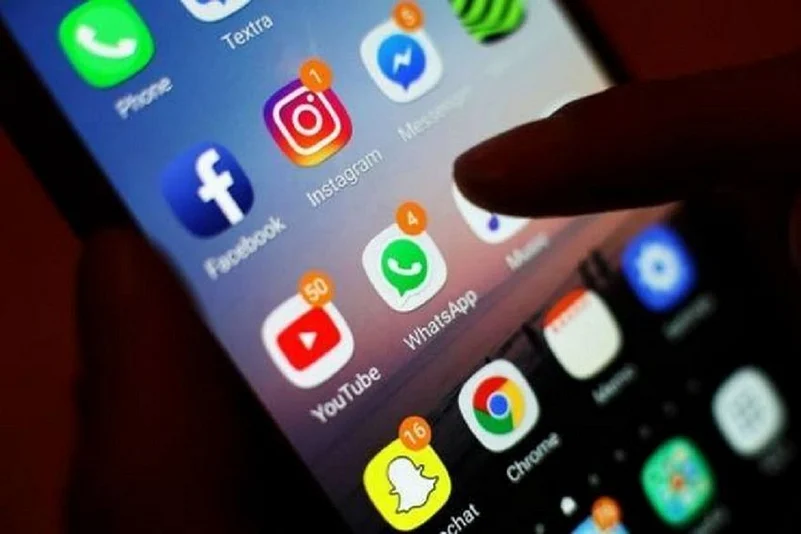What are digital monopolies and why are they so dangerous? A digital monopoly, as the name says, is a monopoly of any service in the online universe. An online monopoly derives its monopolistic behaviour from a phenomenon called the Network Effect. It follows a principle in electrical engineering called the Metcalfe’s law that essentially says that the value of a network grows exponentially with each addition to that network.
Translating this to digital monopolies, if you are not on Facebook, then your joining Facebook will not increase its value by 1, but will add value to the Facebook network in an exponential fashion since you can now connect with not one person on Facebook, but with hundreds and thousands of people. So, if you are given a choice of joining a digital platform where you can connect with hundreds of your friends and acquaintances versus joining a new platform where you can connect with perhaps ten or less of your friends, what will you join? Clearly you will join the platform where you can connect with more people. This is a simple game theoretic outcome. So, you and everyone else, will gravitate to two or three such platforms, which will transform into the nerve centre for influencing society. This is Network Effect.
The question that arises is how does Network Effect make such platforms dangerous? Why is a company that has, say monopoly over salt distribution, not considered to be dangerous? The reason why such digital monopolies are dangerous is because they continue to largely operate outside the jurisdiction of the sovereign government. Any issue that is brought up to their local representative office is answered with an excuse that the local office is a different company that is not responsible for content. It is the parent company, sitting outside the borders of the nation, that is responsible for the content, and the sovereign government has limited jurisdiction over the parent entity.
However, what makes them even more dangerous is that they derive their powers directly from the people. They are possibly more powerful than the government in the area they operate in. Imagine the government coming down heavily on violations by these digital monopolies which include not just Facebook but Google, Amazon, Twitter etc. Let’s say, hypothetically, the government found that Facebook is working against the interest of the nation and asks Facebook to stop operating in India. Such a decision would disrupt humongous amount of commerce in India, would impact MSME’s who do business through Facebook, disrupt communication as Facebook-owned Whatsapp would also have to stop operating and there would be a massive pushback from the people who are addicted to the new opium of social media. Or if one stops Google, millions of taxi drivers of cab aggregator companies will become jobless without the location service. Such is the power of the Digital monopolies, which is why I had coined the term “Technological Sovereignty” more than a decade and a half ago, as the government does not just lose sovereignty to another country but to a company (rings a bell with how one of the most profitable companies in human history, The East India Company, started off?).
Hence, one should look at the recent controversy on Facebook that erupted based on an article in the American newspaper, the Wall Street Journal (WSJ) “Facebook’s Hate-Speech Rules Collide With Indian Politics”, through this lens. The headline has an interesting focus – it focuses on Facebook’s meddling with Indian politics and hence with the will of the people. This is an extremely dangerous phenomenon. The power of narrative, which stitches a story based on selective data points, can strongly influence decision making of people to extreme levels. If one recollects the havoc that was played out by the game “Blue Whale” that pushed teenagers and young adults to commit suicide by playing with their thought process and judgement. And the algorithms have since been improved manifolds with massive increase in computing power and with dollops of funds flowing into the science of mind control through data.
It is not shocking anymore that voters can be manipulated to vote in a certain manner en masse, based on the manipulations through the social media platforms, which not only know who your friends are and what your opinion is on a browser, but knows your deepest desires based on the messages you are sharing on your mobile phone (in case of Facebook, they control Facebook, Whatsapp and Instagram, giving them insight to not only what you are posting, but also what your children and close relatives are posting). It was not long ago that the main opposition party in India was accused of collaborating with Cambridge Analytica, a UK-based entity, that received data from Facebook to go around the globe helping political parties use the personal data to win elections (it is another story that the opposition party did not win the elections).
Now is the turn of the ruling party to face the heat of standing to gain from the actions, or more accurately the inactions of Facebook on a hate comment allegedly posted by one of its MLA’s from Telangana. The said MLA has come out with his side of the story that his Facebook page had been hacked two years ago in 2018, and he had filed a complaint at that time that supposedly blocked his page. However, the accusations on Facebook made by WSJ are grave accusations. The WSJ article says that Facebook detected that the postings on the page of the said politician were offensive, but took the call of not removing them as the person was from the ruling party. It demonstrates how Facebook has abrogated the power to decide what information to be provided to people, and what needs to be filtered out, and this decision is not based on any ethics or morality, but based on the sole motive of profit maximization (again reminds us of the arbitrary rules that were imposed by the East India Company, albeit, Facebook is no East India Company, but handing over the probity of running a nation to a company, even if it is in small parts, is a highly dangerous situation to be in, as the precedents in history tell us).
It is also interesting to note that the newspaper that brought out the so-called expose, runs a paid online site, where one can read the full news article only after paying. What is visible on the site, without making any payments, is a highly sensationalized byte which says “In Facebook posts and public appearances, Indian politician T. Raja Singh has said Rohingya Muslim immigrants should be shot, called Muslims traitors and threatened to raze mosques.” It serves to catch attention, pique the interest and let the issue spread like wildfire in India, which offers one of the largest online catchments of readers in the world. It would be interesting to know how many more paid readers did WSJ manage to garner with this sensationalised news article, that hits a raw nerve in India.
To conclude, one has to note the actors in this rather sordid saga – it has the Wall Street Journal and Facebook and we still do not know what the facts are as Facebook has denied that it had deliberately not removed the alleged hate speech. Neither WSJ, nor Facebook are under the jurisdiction of the Republic of India. Their interests in India do not go beyond their revenue maximization goals. They neither have their families in India, nor have any plans to move to India. If India burns due to riots (as we saw happening in Bangalore recently where allegedly a tweet led to instant riots), it does not affect them, unless it leads to advertisement revenues going down. Unfortunately, with every such event, more people join these platforms out of curiosity, contributing to a vicious cycle.
Having noted the issue, one cannot take a luddite stance either of breaking everything that is not under our control. But, when the political framework of the country is under threat, it is equally surprising to see the Election Commission, the temple of India’s democracy, endorsing a platform such as Facebook. Now that the bugle call of Atmanirbhar Bharat has been raised, one has to put money where the mouth is and start supporting these Indian apps. If user base is an issue, there are established Indian apps such as Sharechat with over 250 million users, Hike messenger with over 100 million users and others, which are as sizable as Facebook’s user base in India.
It is high time that the government and public institutions chart out a glide path away from digital monopolies that are not completely under the control of the Republic of India. This is crucial from the perspective of national security and technological sovereignty.
(The author is president, Centre for Digital Economy Policy Research. Views expressed are personal.)


























